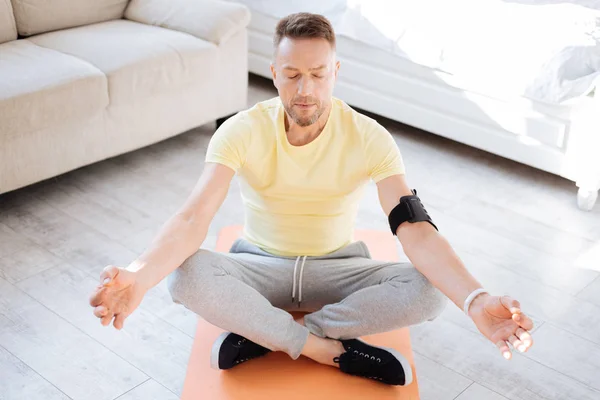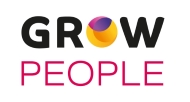Interview tips and tricks
Going to an interview is often a bit scary, especially if you don't have much experience of them. The first thing to remember is that this is an opportunity that the employer is giving you to show what you can do, and how you can contribute towards the job and their organisation. It's also an opportunity for you to find out about how they work, and whether the role is the right one for you.

Preparation
Use what you know
When a job is advertised, you will have a certain amount of information about the job and the organisation. This comes from a job advert, personal specification or job description. This information will help you to prepare for your interview. The questions you'll be asked are likely to be around what they are looking for in a candidate, so look for the key points. It can help to highlight them. See our application form page for more information.
Standard questions
Use the key points above to think of examples of times when you have shown what they are looking for; Anyone can say "I'm a good team player", but can you show it?
You could say:
"I am a good team player as I worked with my friends to plan and present a project in my Business Studies class at school. We came up with the idea, researched it and made the product. We thought about what we were good at and supported each other. I took on a leadership role and helped keep us on track."
Or
"I am a good team player as I play football every Sunday. I make sure I listen to the coach and the advice he gives us, look for other players who are free, encourage and motivate others and ensure everyone feels listened to and respected."
As we've shown above, your examples don't have to be work-related. Think about times in your life when you have demonstrated each key point. Look through the page on application forms for more advice on using the STAR technique which is great to use for answering interview questions. Write your examples down, so you can read them through a few times before you go to the interview to have them firmly in your head.
Situational questions
Sometimes an employer will ask a different type of question, where they are looking to find out how you would deal with real life situations. This is quite often in customer facing jobs like retail, customer service or hospitality. The employer gives you a scenario and ask what you would do if you were faced with this situation.
You can prepare for this type of question by having a think about the kind of difficult situations that may happen in the day to day job. Could you have to deal with a difficult or aggressive customer, a drunk in a bar or someone making a complaint? It might be around an emergency like how you'd respond to someone becoming unwell, having a panic attack or a lost child.
Most employers will give training or have policies around these types of situations. It's good to make sure you say that you would do what you have been trained to do or the policy says, but then think about how you would respond in a caring, calm and appropriate way.
If someone is upset or angry, staying calm, listening to them, and either being able to deal with it yourself or refer to a manager are good techniques. Dealing with an emergency may mean you need to remain calm, move people out of the way or contact emergency services.

Research
Make sure you have done your research about the job and the organisation before you go to the interview. There are a few ways you can do this.
Look online
Have a look at the company website and read through the company's values or mission statement. Find out the history and what kind of organisation it is. It's good to have some background knowledge, and it may prompt you to think of some questions to ask the interviewer (more on that later).
Review sites
These sites are becoming more popular. Trip Advisor and google often have reviews of bars, restaurants, pubs and tourist attractions. Glassdoor have reviews from former employees, as does Indeed. Have a look at these, as it'll either highlight a good employer who cares about the product they are selling, and hopefully therefore their staff, or it might highlight some areas of concern.
If it sounds like a restaurant is understaffed, it means that they are recruiting to try and fill this gap, but it's good to have at the back of your mind whether staff are leaving for a reason, especially if it sounds like things haven't improved for a while. You can also find out things like health and hygiene ratings, as all hospitality venues display them. That'll tell you a lot about the level of care the employers take.
Visit the organisation
With customer facing roles, going to have a look at the place is a great way to do research. If it's a shop, you could go and have a browse or just walk past. You could pop into a café or pub for a drink. If you can't get into a place, just walking the area nearby and having a look at the building sometimes helps you understand how big an organisation is and what sort of clothes people are wearing.
Talk to others
Sometimes, the best research is through other's experiences. Have people you know ever eaten at the restaurant or had dealings with the organisation over the phone? Have they bought a product from them? Have they worked for the organisation or know someone that does? You must be a bit careful as everyone's experiences will be different, but it's worth getting informal feedback and information about an organisation too.
Think about questions you can ask
Employers generally give you an opportunity to ask questions at the end. This is a chance to show that you've done some research and are interested in the job and the company. Think of 5-6 questions, and then if some are covered in the interview, you still have back-ups. Don't ask about rates of pay, holidays or discounts, as it shows you are only interested in those things, and those questions can be asked when you are offered the job. Some good examples of questions are:
"What training or development opportunities do you provide? Can you describe a typical day in this role? What's the best thing about working for the company?"
If you can make them specific about the organisation, then do. For example:
"I noticed you mentioned using a computer system called ANGEL. Can you tell me more about this? I've noticed you have a new product launch coming soon. Can you give any more information about this?"

Practical Preparations
Have you got appropriate, clean and tidy clothes to wear?
The sooner you decide on your interview clothes and get them ready, the better. Make sure your clothes are slightly smarter than the clothes worn by people working at the organisation. It's better to feel slightly over-dressed than slightly under-dressed. Make sure they fit and are comfortable. Remember you are likely to feel hotter than normal in an interview if you are feeling nervous, so layers can work well.
Have you planned your travel?
Make sure you have enough money for your bus ticket, train ticket or parking. Make sure you have enough petrol or you know which bus you are getting and where to get off and on. If possible, do a dry run at the same time of day to see how long it takes you with the traffic at that time of day. Build in some extra time in case of a delay. If you are walking or cycling, make sure you arrive in plenty of time, so you have cooled down enough before you go into your interview.
Do you know the details?
Make sure you check exactly where the office is, who is interviewing you, whether you need to take anything with you or prepare anything in advance. Make sure you get everything ready well in advance, so you aren't rushing and have time to get ready slowly and have time to look over everything before your interview.

On the day
Nerves
It's only natural to feel anxious or nervous before an interview. It shows that you care. Interviewers will be expecting nerves, so don't be ashamed. The thought of the interview is most often worse than the interview itself. If you are finding it particularly difficult, try this breathing exercise: Try breathing in for 4, then out for 8 and repeat. It doesn't matter if your breaths are shorter than that, just make sure your out breath is longer than your in breath. This helps calm down your nervous system and help you feel calmer and in control.
Arrive 10 minutes early
Don't arrive too early, as you may be waiting a long time which could make you feel more nervous, you may see another candidate which can be awkward, and it could be an inconvenience for the employer. Arriving late is not a good idea. It shows you don't care, and an employer isn't interested in excuses. Arriving about 10 minutes early gives you time to visit the toilet, and settle down to read your notes before being called in.
Be Yourself
The first tip is to be yourself. Your passion and personality can often make a huge difference to whether someone will want to take you on. If you show you are interested in the role, ask questions and are friendly and approachable, this will really help in your interview.
Answering questions
It's important that you make sure that you answer the question you are being asked. Make sure you check you understand what they are asking you if you're not sure, and don't be afraid to ask the interviewers to repeat the question if you're not sure you've answered it fully.
Take a bottle of water into the interview and take a sip just before answering a difficult question, as it gives you time to think. Don't be afraid to say: "That's a good question, I'll just take a minute to think." To give you a bit more time to come up with a good example.

Looking after your emotional health
In the run up to the interview, make sure you look after your emotional health by talking through any worries or concerns you have either with your Work Coach, Employment Officer or a family member or a friend.
Prepare as much as you can, as this helps you to feel confident.
Consider the breathing exercise above to help calm your nerves.
Get a good night's sleep the night before your interview by switching off electronic devices a couple of hours before bed and doing something relaxing.
After the interview, go for a coffee or meet a friend to do something nice. It's important that you look after your wellbeing, whether the interview went well or not.
Make a few notes on the kinds of questions asked, what went well, and what you could have done better while it's still fresh in your mind. Remember to think of all the positives.
Remember, all interview experiences are good experiences. You'll get better at them the more you do them, so if you aren't successful this time, always ask for feedback on how you can improve, and reflect so that next time you'll feel more confident.







